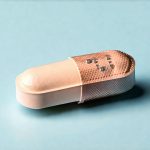Urinary tract infections (UTIs) are frustratingly common, particularly for individuals assigned female at birth, but anyone can experience them. While often manageable, they can be incredibly uncomfortable, disrupting daily life with symptoms like a burning sensation during urination, frequent urges to go, and even lower back pain. What many people don’t realize is that hot weather significantly increases the risk of developing a UTI, making summer a peak season for these infections. This isn’t about increased exposure to bacteria so much as it’s about changes in our behavior and physiology during warmer months that create a more favorable environment for bacterial growth and infection.
The reasons behind this seasonal spike are multifaceted. Increased sweating leads to dehydration if fluids aren’t adequately replenished, concentrating urine which makes it easier for bacteria to thrive. More time spent in swimwear can contribute too – the damp environment is ideal for bacterial proliferation around the urethra. Furthermore, warmer temperatures often encourage more outdoor activities, potentially leading to changes in hygiene practices or increased friction in sensitive areas. Understanding why hot weather increases UTI risk is the first step towards proactively preventing and managing them, ensuring a healthy and enjoyable summer season.
The Connection Between Heat, Hydration & UTIs
Dehydration is arguably the biggest culprit when it comes to summertime UTIs. When we don’t drink enough water, our urine becomes more concentrated with waste products. This creates a breeding ground for bacteria like E. coli, the most common cause of UTIs, as they can latch onto the urinary tract lining more easily in a less diluted environment. Think of it like this: a strong current (well-hydrated urine) helps flush out potential invaders, whereas stagnant water (concentrated urine) allows them to settle and multiply.
This effect isn’t merely theoretical; studies have consistently shown a correlation between lower fluid intake and increased UTI incidence. It’s easy to underestimate how much fluid we lose during hot weather activities—even seemingly mild exertion can lead to significant sweat loss. Consequently, even if you feel like you’re drinking enough water, it might not be sufficient to counteract the dehydration caused by heat and activity. Pay particular attention to electrolyte balance too; sweating doesn’t just remove water but also vital minerals that help regulate bodily functions, including hydration.
Beyond simply drinking more water, consider what you drink. Sugary drinks and excessive caffeine can actually contribute to dehydration or irritate the bladder. Opt for water, herbal teas, diluted fruit infusions, and electrolyte-rich beverages (like coconut water) as your primary sources of hydration. Aim for pale yellow urine – that’s a good visual indicator of adequate hydration.
Lifestyle Adjustments for UTI Prevention in Warm Weather
Hot weather often brings about changes to our routines that can inadvertently increase UTI risk. Clothing choices, hygiene practices, and even recreational activities all play a role. Swimsuits, while essential for beach days or pool trips, trap moisture against the skin, creating an ideal environment for bacterial growth. Tight-fitting clothing made of synthetic materials can have a similar effect.
To mitigate these risks, prioritize breathable fabrics like cotton underwear and loose-fitting clothing whenever possible. After swimming or engaging in activities that cause sweating, change out of wet swimwear or clothes promptly. Good hygiene is also critical; wiping front to back after using the toilet helps prevent bacteria from the digestive tract from entering the urethra. Avoid harsh soaps or douches, as these can disrupt the natural balance of bacteria in the vaginal area (for those assigned female at birth), making it easier for harmful bacteria to take hold.
Furthermore, be mindful of activities that might cause friction in the perineal area. Prolonged cycling or vigorous exercise without adequate lubrication or protective clothing can increase the risk of introducing bacteria into the urethra. Practicing good personal hygiene and making informed choices about clothing and activities are all preventative measures you can actively control to reduce your chances of developing a UTI during hot weather.
Maintaining Optimal Urinary Health Habits
Preventing UTIs isn’t just about avoiding certain behaviors; it’s also about adopting proactive habits that support overall urinary health. One key aspect is complete bladder emptying. Don’t hold urine for extended periods, as this can allow bacteria to multiply in the bladder. Make a habit of going to the bathroom when you feel the urge, and take your time – ensure you fully empty your bladder each time.
Another important consideration is dietary choices. While there’s no magic food that prevents UTIs, certain foods may offer some protective benefits. Cranberry products have long been associated with UTI prevention, although research findings are mixed; the benefit isn’t necessarily preventing infection but potentially hindering bacterial adhesion to the urinary tract walls. Foods rich in vitamin C can also boost the immune system and help fight off infections. Maintaining a balanced diet supports overall health, which indirectly contributes to a stronger defense against UTIs.
Finally, remember that sexual activity can sometimes increase UTI risk for those assigned female at birth. Urinating immediately after intercourse helps flush out any bacteria that may have entered the urethra during sex. Using lubrication and practicing good hygiene before and after intimacy are also beneficial steps.
Recognizing Early Symptoms & When to Seek Help
Early detection is crucial when it comes to UTIs. Being aware of the common symptoms can prompt you to take action before the infection progresses. The hallmark sign is often a burning sensation during urination, accompanied by frequent urges to go but only passing small amounts of urine. You might also experience cloudy or foul-smelling urine, lower abdominal discomfort, or even blood in your urine (hematuria).
It’s important to differentiate between mild symptoms and those that warrant medical attention. If you suspect a UTI, it’s best not to self-treat with over-the-counter remedies for an extended period without consulting a healthcare professional. While cranberry juice or increased hydration might alleviate some discomfort temporarily, they won’t eliminate the infection.
Seek medical attention if your symptoms are severe (e.g., high fever, back pain, nausea, vomiting), persist beyond a few days, or if you have underlying health conditions that could increase your risk of complications. A doctor can properly diagnose the UTI and prescribe appropriate antibiotics to clear the infection. Ignoring a UTI can lead to more serious complications like kidney infections, so prompt treatment is essential. If you are dealing with work deadlines and suspect a UTI, seeking medical attention promptly is crucial.
Boosting Your Immune System for Enhanced Protection
A robust immune system is your body’s first line of defense against UTIs and other infections. While there’s no guaranteed way to “boost” your immunity overnight, adopting lifestyle habits that support immune function can significantly reduce your susceptibility to infection. Prioritizing sleep is paramount; aim for 7-9 hours of quality sleep each night to allow your body to repair and rejuvenate itself.
Stress management also plays a vital role. Chronic stress weakens the immune system, making you more vulnerable to illness. Incorporate relaxation techniques like yoga, meditation, or deep breathing exercises into your daily routine to manage stress levels effectively. Regular exercise is another key component of a healthy immune system. Aim for at least 30 minutes of moderate-intensity exercise most days of the week.
Finally, ensure you’re getting adequate vitamins and minerals through a balanced diet. Vitamin D, vitamin C, zinc, and probiotics are all known to support immune function. Consider incorporating probiotic-rich foods like yogurt or kefir into your diet to promote gut health, as a healthy gut microbiome is closely linked to overall immunity. A strong immune system doesn’t eliminate the risk of UTIs altogether, but it can significantly reduce their frequency and severity. Understanding cold weather triggers alongside lifestyle adjustments is key to prevention.
For those experiencing recurring infections, exploring options on how to deal with constant UTI recurrence can be beneficial. Don’t hesitate to seek guidance on intimacy and UTIs to navigate these concerns comfortably.





















